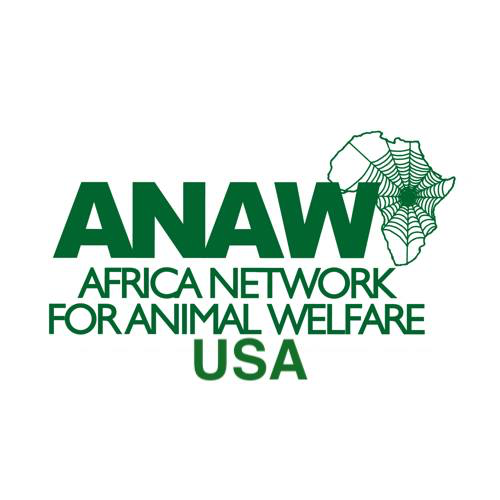
Facilitating Mutually Beneficial Exchanges Between the USA & Africa that Benefit People, Animals, and the Environment
At ANAW-USA, we work with ANAW and other partners to advance the inseparable welfare of animals, humans, and the environment by:
Mobilizing Resources
Expanding Inter-organizational Capacity
Facilitating Exchanges of Knowledge
Further, to ensure the long-term viability and effectiveness of the organizations and interventions we support in Africa, ANAW-USA works to build M&E capacity while also utilizing our team’s expertise to support research/data collection that furthers the creation of an evidence base to inform and build feedback structures into specific interventions. This is done with an eye towards promoting best practices on animal welfare issues as well as the sustainability and clear outcomes of projects. This behind the scenes work is an essential part of our contribution to ANAW and of creating a lasting model of change for animals on the continent that has the capacity to scale and feed into long-term solutions.
By focusing on behind the scenes resource mobilization, research & evidence-generation, knowledge exchange, & strategic development at our USA office, we empower and enable our ANAW colleagues in Africa to devote more of their time and efforts towards on the ground projects & program efforts that make a tangible difference to animals and communities. Together this allows us to push strategic, data-driven interventions that bring rigor and accountability to animal advocacy efforts in Africa. This 21st century model of international partnerships and collaboration allows for different entities working towards a shared cause to support one another, while focusing on doing what we each do best.











Central Issues at Hand:
-

Bushmeat Trade
Fueled internationally by an increasing demand and market for illegal wildlife - and locally by issues of food and livelihood insecurity - wildlife, ecosystems, and humans in Africa are greatly affected by bushmeat trade and consumption. The primary animals targeted for bushmeat include chimpanzees, gorillas, elephants, monkeys, guinea fowl, among others.
Some of the consequences of bushmeat trade and consumption are: (1) dangerous and illegal hunting methods, such as wire snares; (2) hunting of endangered species; (3) extinction of species; (4) lack of food security for rural populations; (5) and the spread of zoonotic diseases, such as HIV/AIDS, Ebola, and COVID-19.
We view understanding the root causes of this problem as an essential part of developing lasting solutions, which is why we look at issues of poverty, displacement, climate change, and food & livelihood insecurity when thinking about the kinds of changes that need to be made to promote animal welfare.
-

Poaching and Ivory Trade
Poaching is prolific throughout Africa, and especially in Kenya due to its abundant wildlife. Although the international trade of ivory was banned in 1989 by the Convention on International Trade in Endangered Species of Wild Fauna and Flora (CITES), the issue is still widespread and ivory trade is active around the world. In 2019, approximately 37, 000 African elephants were poached, contributing to a $7-$10 billion dollar per year industry worldwide.
Most people are unaware that elephants are killed in order to harvest their ivory, and many would be surprised to find out that the USA is the second leading consumer of illegal ivory worldwide, following China. The consequences of poaching are devastating, cruel, and putting many species at risk of extinction.
Countering illegal poaching will require a holistic understanding of the incentives and insecurities driving it, as well as the development of alternative livelihoods and stricter government and market regulation.
-

Ending the Donkey Skin Trade
The donkey skin trade is a global crisis rooted in East Africa, with projections estimating that the species could be wiped out by 2023 if nothing is done. In Kenya, approximately 360, 000 donkeys were slaughtered between 2016 and 2019, causing devastating harm to this species while also affecting 36, 000 households that rely upon these creatures for their livelihoods.
Kenya houses four abattoirs, or slaughter houses, fueled by a demand for their skins in China. ANAW has partnered with other organizations to demand these abattoirs be closed and that the trade of donkey skins be banned to ensure the continuation of this remarkable species.
This issue again highlights how animal welfare is deeply intertwined with wider economic systems that are vulnerable to corruption and that enable the exploitation of the natural world and its inhabitants for profit.
-

Countering Trends Towards Factory Farming
There are worrying trends towards factory farming and an increase in animal exploitation for food occurring across East Africa. Understanding the roots of these trends and the economic incentives driving these changes and engaging local communities in the origins of their food and the welfare standards behind certain consumption practices, is essential to preventing both the environmental and ecosystem degradation that comes with factory farming, and the often egregious suffering of those animals that are farmed en masse for human consumption.



